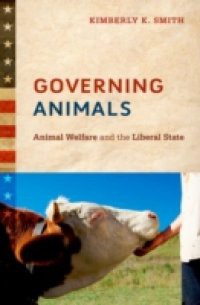What is the role of government in protecting animal welfare? What principles should policy makers draw on as they try to balance animal welfare against human liberty? Much has been written in recent years on our moral duties towards animals, but scholars and activists alike have neglected the important question of how far the state may go to enforce those duties. Kimberly K. Smith fills that gap by exploring how liberal political principles apply to animal welfare policy. Focusing on animal welfare in the United States, Governing Animals begins with an account of the historical relationship between animals and the development of the American liberal welfare state. It then turns to the central theoretical argument: Some animals (most prominently pets and livestock) may be considered members of the liberal social contract. That conclusion justifies limited state intervention to defend their welfare - even when such intervention may harm human citizens. Taking the analysis further, the study examines whether citizens may enjoy property rights in animals, what those rights entail, how animals may be represented in our political and legal institutions, and what strategies for reform are most compatible with liberal principles. The book takes up several policy issues along the way, from public funding of animal rescue operations to the ethics of livestock production, animal sacrifice, and animal fighting. Beyond even these specific policy questions, this book asks what sort of liberalism is suitable for the challenges of the twenty-first century. Smith argues that investigating the political morality of our treatment of animals gives us insight into how to design practices and institutions that protect the most vulnerable members of our society, thus making of our shared world a more fitting home for both humans and the nonhumans to which we are so deeply connected.

